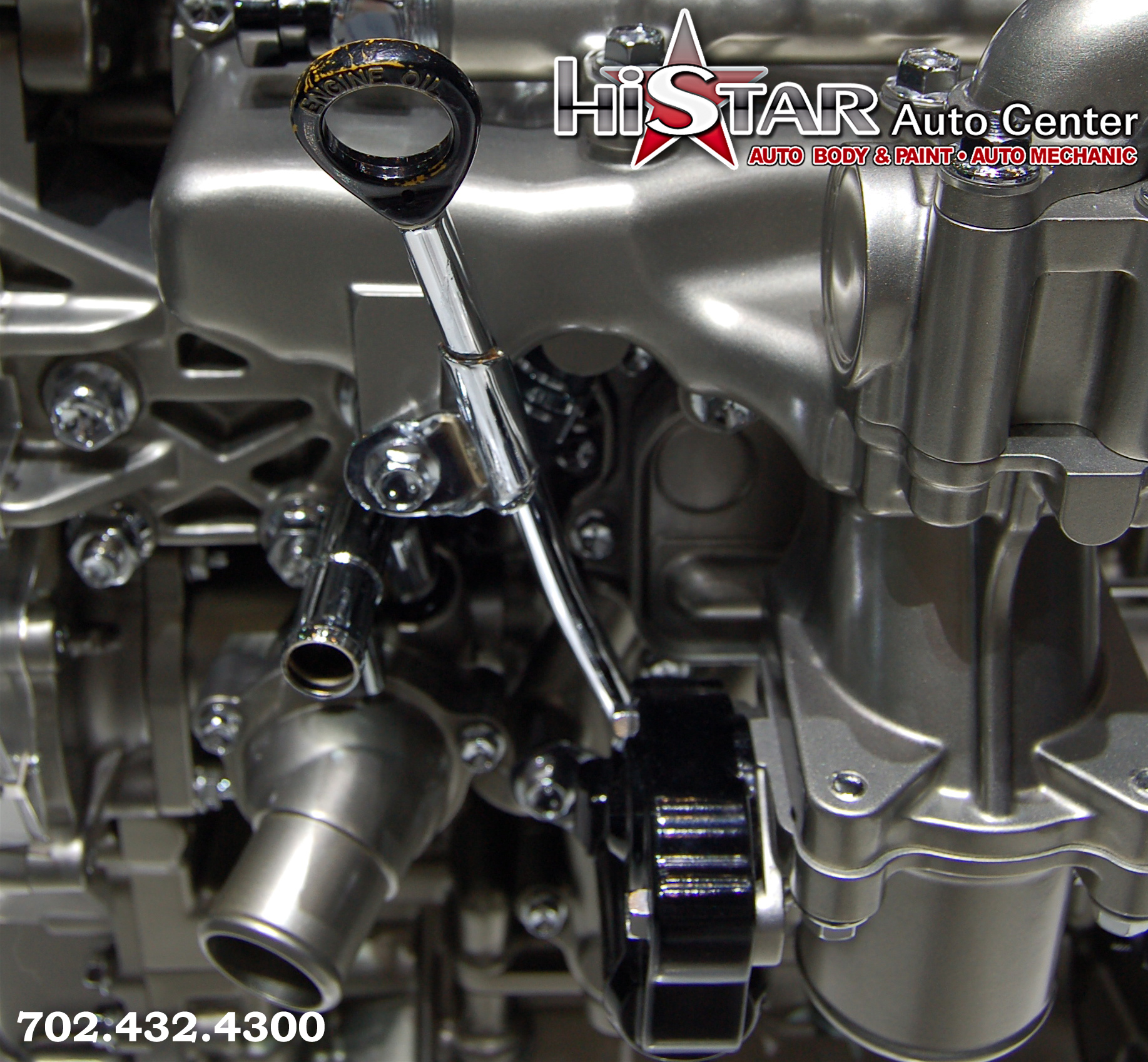Your car’s fluids should be checked regularly, depending on how often you drive your car. Your owner’s manual will give you specifications as to where to locate the places to check the fluids as well as their recommendations as to how often to check. It is a smart idea to check them more often than recommended.
Checking Your Motor Oil
- Wait for at least an hour for the engine to cool down and the oil to settle into the drain pan of the engine.
- Locate the dipstick ring and pull it out. Wipe it off with a rag or towel.
- Return the dipstick all the way and pull it back out again. The oil should fall between two marks on the sticking showing the proper level. If it is lower than the last mark, it could be a sign of problems and should be checked by a Las Vegas mechanic.
- Take note of the color and consistency of the oil. If it is very dark, it is time for an oil change. While foamy oil could should a sign of contamination and should be checked by a mechanic as soon as possible.
Checking the Transmission Fluid
- The engine should be running and warm when it is checked.
CAUTION: LIQUIDS CAN BE EXTREMELY HOT! - This is also checked with a dipstick. Be sure to wipe it first and then fully insert it to check levels.
- This fluid should never be low. If it is, it could be a sign of a problem and should be addressed immediately.
- Another warning sign is if the fluid has a burnt smell or is brown instead of red in color.
Checking the Coolant Levels
- Car engine should be cool before checking
- Checking is as simple as finding the plastic coolant reservoir and observing the level markings.
- Replenish low levels withe proper coolant/antifreeze for the car.
Checking the Power Steering Fluid
- Find the plastic reservoir and observe the markings on the outside
- If it is low, it is a sign of problems and should be checked out
Checking the Brake Fluid
- This is also located in a plastic reservoir.
- If it is low, it is a sign of a leak and should be checked out immediately.

